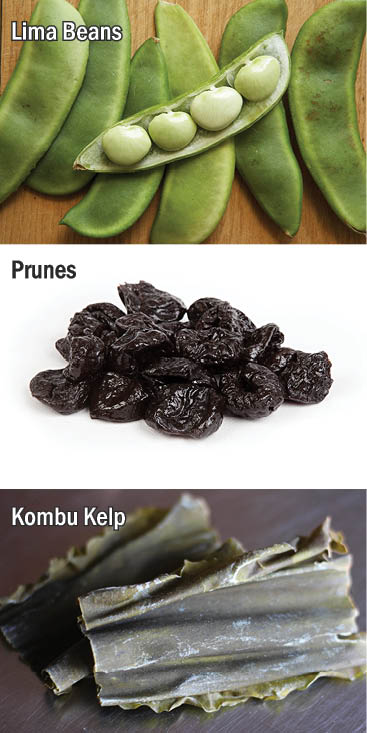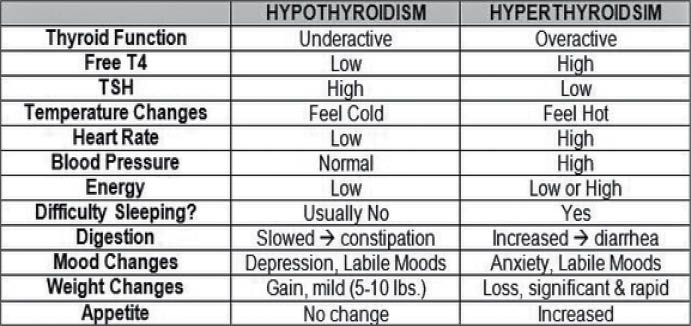Dr. Danesh D. Chinoy is a leading Health and Wellness Coach, Sports Physiotherapist and Psychologist. He is dedicated to helping all to heal holistically and remain fighting fit for life. Providing eye-opening and ground-breaking insights into Wellness, Dr. Chinoy’s two-decades’ rich expertise has won him innumerable awards, nationally and globally. His mission is to empower you to reach your highest levels of wellness/fitness. You can connect with Dr. Chinoy at: daneshchinoy@gmail.com.
 Thyroid health is an area of much interest and queries during my public lectures and interactions, over digital media with our esteemed readers.
Thyroid health is an area of much interest and queries during my public lectures and interactions, over digital media with our esteemed readers.
A principal cause of hypothyroidism, or underactive thyroid, is related to elevated reverse T3 (a thyroid hormone) levels. This may be due to heavy metal toxicity, which can cause a functional form of hypothyroidism. Hypothyroidism is a common ailment caused due to various reasons including drinking chlorinated water, using fluoridated products and eating brominated flour. Chlorine, fluorine, and bromine are all in the same family as iodine; and can displace iodine in your all-important thyroid gland.
Additionally, many people don’t receive enough iodine in their diet. The amount you get from iodized salt is just barely enough as most often, the iodine is not in its bio-available, organic form and instead, as artificial lab-prepared iodide. I always suggest our meals should have natural salts, such as rock salt or natural sea salt. Iodine should be made available to our bodies from its natural bio-available sources.
There’s compelling research suggesting that iodine is equally important for breast health, and that iodine – not iodide – combines with a lipid to form molecules which actually kill breast cancer cells. Iodine is also crucial for other breast-related problems, like fibrocystic breast disease, which iodine works wonders with. Interestingly, for severe cases, it’s recommended to swab the entire cervix with iodine. Thus, it’s a common practice to find lady patients with hypothyroid symptoms often showing signs of breast related pathology. Iodine is an essential mineral you must get from your diet. Interestingly, your thyroid gland needs it to produce thyroid hormones, which have many important responsibilities in your body. The recommended daily intake (RDI) of iodine is 150 mcg per day for most adults. For women who are pregnant or nursing, the requirements are higher.
In fact, one-third of the population is at risk of iodine deficiency, particularly those living in areas that have only a small amount of iodine in the soil, also called the ‘Goitre belt region’. Iodine deficiency can lead to swelling of the thyroid gland, known as goiter, and hypothyroidism, which can cause fatigue, muscle weakness and weight gain.
Let’s explore natural sources that help in replenishing the iodine reserves of our body:
Seaweed: is one of the best natural sources of iodine. Three popular seaweed varieties, now available in Mumbai and elsewhere include Kombu Kelp, Wakame and Nori. In a study that surveyed seaweed samples for their iodine content, it was found that kombu kelp contains, by far, the highest amount of iodine compared to other species of seaweed. Kombu kelp can contain up to 2,984 mcg of iodine per gram. This provides almost 2,000% of the recommended daily intake. Excess iodine consumption is well-tolerated in the majority of people but could result in thyroid dysfunction for those who are susceptible. The average amount of iodine in wakame seaweed was 66 mcg per gram, or 44% of the daily recommended intake. The iodine content in nori varies between 16–43 mcg per gram, or about 11–29% of the daily value.
Lima Beans (Paapdi/Vaal): A good source of fiber, magnesium and folate, makes Lima Beans a heart-healthy choice which is a relatively good source of iodine. On average, one cup of cooked lima beans contain 16 mcg of iodine, or 10% of the daily value.
Prunes are plums that have been dried. Five dried prunes provide 13 mcg of iodine, or about 9% of the daily value.
Also, people with Hypothyroid would do well to include foods rich in selenium such as pumpkin seeds and mushrooms. Avoid goitrogenic foods such as cabbage and other cruciferous vegetables.
Check for signs of thyroid dysfunction such as dry skin, thinning of the outer margins of your eyebrows, subtle accumulation of fluid in your ankles, constipation, lack of sweating, weight gain, and high cholesterol. An older yet helpful test is to take your temperature every morning and observing if your temperature registers close to 98.6F. If temp is regularly low, it may be underactive thyroid.
As for laboratory tests, the complete thyroid panel includes thyroid-stimulating hormone (TSH), total T4, free T4, total T3, free T3, and the reverse T3. The TSH level doesn’t really become a valuable indicator of hypothyroidism unless it’s high, say around 5 or 10. I strongly recommend basing the diagnosis on the physical examination and the Free T3, free T4 levels instead, which is the protocol most physicians follow these days.
For hypothyroidism treatment, synthetic thyroid hormone replacement is typically and traditionally given by almost every conventional physician. For hypothyroidism related to elevated reverse T3 levels, in response to heavy metal toxicity, I highly recommend detoxifying before beginning the conventional thyroid treatment. If you’re on thyroid hormone replacement, two key signals that you’re taking too much are excessive sweating and rapid heartbeat or heart palpitations. If you get either of those symptoms, you’re getting too much thyroid, and you need to cut back on the dose. It’s also worth noting that in some cases, if you’re borderline hypothyroid, you may only need an iodine supplementation rather than a thyroid hormone replacement.
At the other end of the spectrum of thyroid dysfunction, you have hyperthyroidism, where your thyroid is overactive. It’s far less common than hypothyroidism, but it’s no less of a problem when it happens. Conventional treatment includes using radio-active iodine or surgery. I have my reservations for both and would rather want people to consider the treatment that originated at Walter Reed Army Medical Center (WRAMC), at their department of thyroid. They conducted scientific trials to establish treating hyperthyroidism using Iodine and Lithium. Most of their patients could bring hyperthyroidism under rapid control. Foods that contain lithium would be cereals, cabbage, potatoes, tomatoes etc.
It’s important to understand that we are all unique, so what works for one person may not work for another. With this article, I intend to give you all a starting point for your own health discovery. Please consider this a disclaimer that nobody should self-medicate but always consult their physician before following any advice.
- Anatomy, Physiology And Physiotherapy: The Wacky World Inside You - 20 April2024
- Beyond Numbers: Being Kind To Your Body Post-40 - 16 March2024
- Marvels Of Lymphatic Drainage Demystified - 25 November2023
